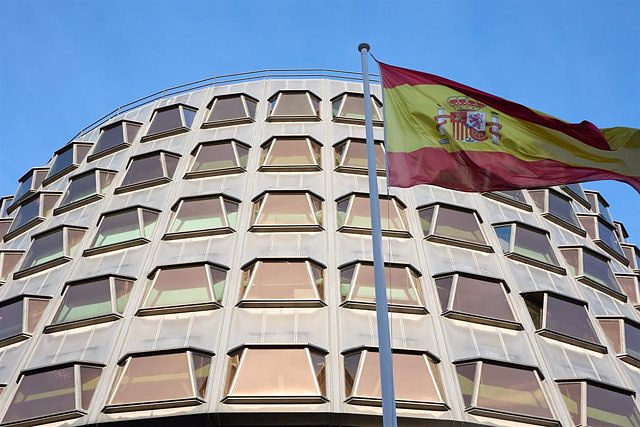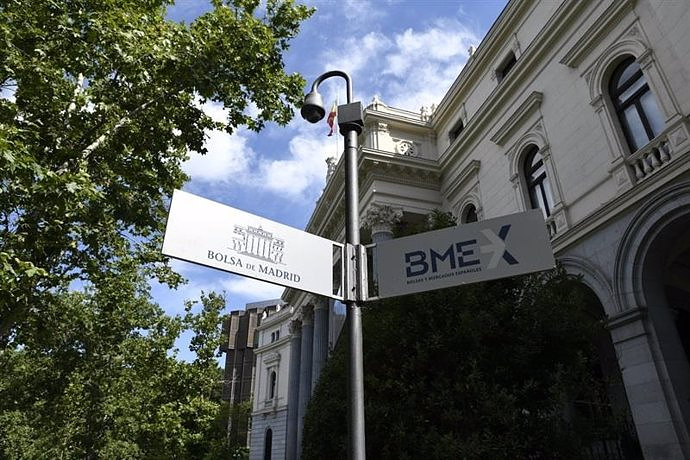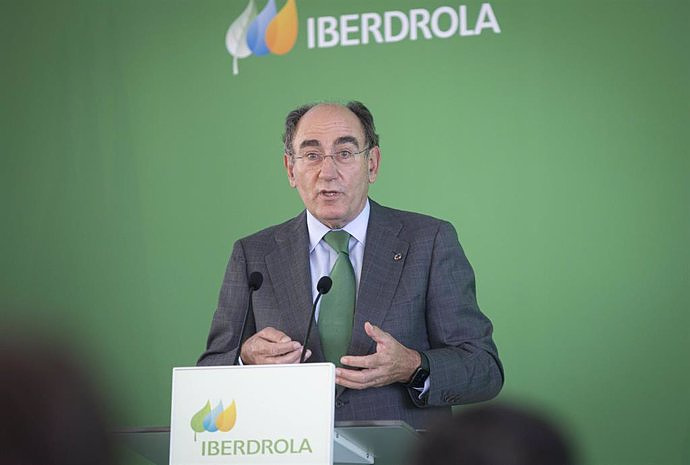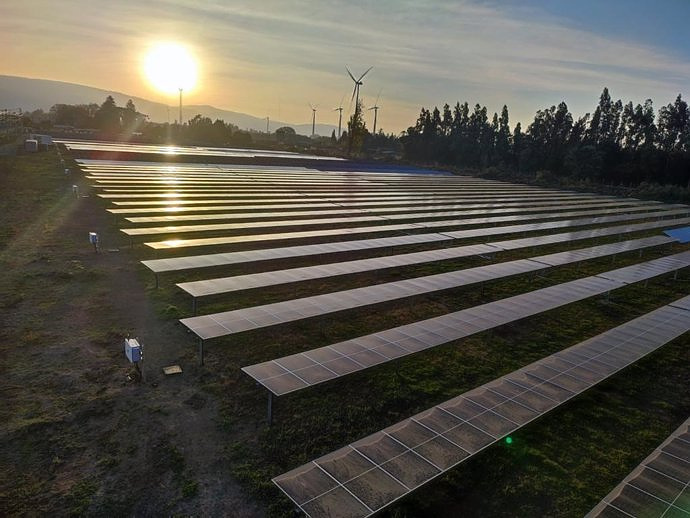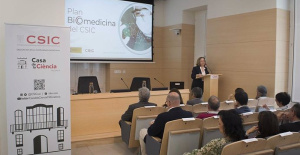Campo and Díez have decided to withdraw from various issues, while Vox has challenged them along with two other magistrates
MADRID, 23 Ene. (EUROPA PRESS) -
The new Constitutional Court (TC) will hold its first jurisdictional plenary session starting this Tuesday, which is loaded with issues. Thus, it will address the abstentions of the magistrates Juan Carlos Campo and Laura Díez and the challenges of Vox against them and their colleagues María Luisa Segoviano and Cándido Conde-Pumpido, in addition to studying the admission for processing of the appeal of those of Santiago Abascal against the well-known as 'law of only yes is yes'.
According to the sources of the guarantee court consulted by Europa Press, Campo and Díez announced their decision to abstain from the agenda of the plenary session that will start this Tuesday, since it includes among its issues Vox's challenge of the freedom and guarantee law sexual, those of this party and the PP for the vote on the labor reform, and one related to the imposition of 25% of Spanish in Catalan classrooms.
Díez, a former high-ranking official of Moncloa, chose to step aside because the Plenary will address an appeal by Omnium Cultural against the decision of the TC to reject his appearance in the question of unconstitutionality formulated by the Superior Court of Justice of Catalonia (TSJC) so that the Constitutional review the law approved by the Government that eliminates the obligation to teach 25% of classes in Spanish.
However, the sources indicate that, once his abstention was ratified in plenary regarding the challenge of Omnium Cultural -- presentation by magistrate Ricardo Enríquez --, this will be extended to the presentation on the appeals of the Popular Party and Citizens against the law Catalan, which fell to Díaz when he inherited the entire portfolio of affairs of the former magistrate of the TC Antonio Narváez.
The reason for Díez's abstention is that she signed several opinions of the Council of Statutory Guarantees of Catalonia, as vice-president, in favor of not imposing said percentage of Spanish in the classrooms of the autonomous community.
As for Campo, he has chosen not to participate in the deliberations on whether or not to admit Vox's appeal against the 'law of only yes is yes' - a presentation by Ramón Sáez - because when the Government drafted it it was still Justice minister.
He has also moved away from the discussion on a series of information requirements -also a presentation by Ramón Sáez- related to the appeals launched by the 'popular' deputy Alberto Casero, the PP and Vox against the vote on the labor reform because they directed against the president of the Congress of Deputies, Meritxell Batet, Campo's current partner.
The appellants fight Batet's decision not to allow Casero to vote in person after he issued a 'yes' electronically, a vote that was key for the labor reform to be approved on February 3, 2022, and for the lawyers of the Congress of the Deputies concluded that it was due to human error, not a failure of the remote voting system.
It should be remembered that, after leaving the Ministry of Justice and occupying his position as magistrate in the Criminal Chamber of the National Court, Campo also had to refrain from participating in decisions related to cases linked to political parties, such as the pieces of the 'case Villarejo' known as 'Dina' and 'Kitchen'.
In addition, the Plenary of the TC will address the challenges formulated by Vox against these two magistrates, his partner María Luisa Segoviano and the president of the Constitutional Court, Cándido Conde-Pumpido, to prevent them from being part of the deliberations related to the appeal presented by the political party against the penal reform that has repealed sedition and modified embezzlement.
Vox pointed to Campo for his relationship with Batet and his previous positions as Minister of Justice and Socialist deputy, considering that he could "have a direct or indirect interest" because it is a law "that his former colleagues in the parliamentary group have approved."
In relation to Díez, the party singled her out for having "participated directly or indirectly in the matter that is the subject of the lawsuit, due to her status as a high position in the Ministry of the Presidency and being trusted personnel of Minister Félix Bolaños."
Regarding Segoviano, he mentioned his statements "while he was an emeritus magistrate of the Supreme Court." Specifically, when she referred to self-determination in the following terms: "This is a very complex issue, extremely complex. It is a subject with many edges that must be studied."
Lastly, de Conde-Pumpido highlighted his "special ties to the government party" and for "having been a defender or representative of one of the parties or having intervened in a lawsuit as a prosecutor."
Sources from the guarantee court see the need for the TC to protect its jurisdiction against challenges launched by Vox. Thus, they explain that by questioning 4 of the 11 magistrates that make up the court, it is impossible for the Plenary in which this matter is studied to be formed with the minimum of 8 magistrates required by law.
To this, the sources add that the challenges against Constitutional magistrates must be especially well-founded, since this court does not have mechanisms to replace its members.
On the other hand, the TC will study the admission of the appeal of the President of the Government against article 12 of the Law of the Generalitat of Catalonia 1/2022, of March 3, which modifies the one destined to "address the emergency in the field of housing", with María Luisa Balaguer as speaker.
This precept imposes the "obligation" to "offer a social rental proposal before filing certain lawsuits", such as eviction, for debt claims.
Already in the first deliberation, the court of guarantees will analyze another Vox appeal against article 2 of the Decree-law of the Generalitat of Catalonia 4/2022 on urgent measures in the tax and financial field, whose presentation is also dealt with by Sáez.
The contested article modifies the tax on facilities that affect the environment for the "activities of production, storage or transformation of electrical energy" and indicates that "the increase in collection that is verified by the difference between the tax rates" new and old "the financing of energy transition actions is affected".

 Exploring Cardano: Inner Workings and Advantages of this Cryptocurrency
Exploring Cardano: Inner Workings and Advantages of this Cryptocurrency Seville.- Economy.- Innova.- STSA inaugurates its new painting and sealing hangar in San Pablo, for 18 million
Seville.- Economy.- Innova.- STSA inaugurates its new painting and sealing hangar in San Pablo, for 18 million Innova.- More than 300 volunteers join the Andalucía Compromiso Digital network in one month to facilitate access to ICT
Innova.- More than 300 volunteers join the Andalucía Compromiso Digital network in one month to facilitate access to ICT Innova.-AMP.- Ayesa acquires 51% of Sadiel, which will create new technological engineering products and expand markets
Innova.-AMP.- Ayesa acquires 51% of Sadiel, which will create new technological engineering products and expand markets Garbiñe Muguruza: "Winning my two 'big ones' at Williams has a special value"
Garbiñe Muguruza: "Winning my two 'big ones' at Williams has a special value" Catalonia extends price containment to all rentals except vacation rentals
Catalonia extends price containment to all rentals except vacation rentals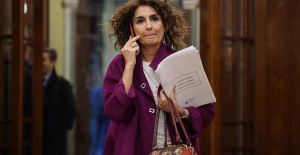 Montero rules out deflating personal income tax because the most common salary in Spain saves 871 euros per year on this tax
Montero rules out deflating personal income tax because the most common salary in Spain saves 871 euros per year on this tax The Ibex 35 lost 0.1% in the mid-session, but retained 11,000 integers
The Ibex 35 lost 0.1% in the mid-session, but retained 11,000 integers How Blockchain in being used to shape the future
How Blockchain in being used to shape the future Not just BTC and ETH: Here Are Some More Interesting Coins Worth Focusing on
Not just BTC and ETH: Here Are Some More Interesting Coins Worth Focusing on Looking for video games that value the neighborhoods of Valencia
Looking for video games that value the neighborhoods of Valencia UPV researchers improve the efficiency of air conditioning systems using a geothermal heat pump
UPV researchers improve the efficiency of air conditioning systems using a geothermal heat pump València is committed to citiverse and smart tourism to be "the reference technological hub of the Mediterranean"
València is committed to citiverse and smart tourism to be "the reference technological hub of the Mediterranean" Valencia displays its "innovative and technological potential" at the Emerge Americas event in Miami
Valencia displays its "innovative and technological potential" at the Emerge Americas event in Miami A million people demonstrate in France against Macron's pension reform
A million people demonstrate in France against Macron's pension reform Russia launches several missiles against "critical infrastructure" in the city of Zaporizhia
Russia launches several missiles against "critical infrastructure" in the city of Zaporizhia A "procession" remembers the dead of the Calabria shipwreck as bodies continue to wash up on the shore
A "procession" remembers the dead of the Calabria shipwreck as bodies continue to wash up on the shore Prison sentences handed down for three prominent Hong Kong pro-democracy activists
Prison sentences handed down for three prominent Hong Kong pro-democracy activists ETH continues to leave trading platforms, Ethereum balance on exchanges lowest in 3 years
ETH continues to leave trading platforms, Ethereum balance on exchanges lowest in 3 years Investors invest $450 million in Consensys, Ethereum incubator now valued at $7 billion
Investors invest $450 million in Consensys, Ethereum incubator now valued at $7 billion Alchemy Integrates Ethereum L2 Product Starknet to Enhance Web3 Scalability at a Price 100x Lower Than L1 Fees
Alchemy Integrates Ethereum L2 Product Starknet to Enhance Web3 Scalability at a Price 100x Lower Than L1 Fees Mining Report: Bitcoin's Electricity Consumption Declines by 25% in Q1 2022
Mining Report: Bitcoin's Electricity Consumption Declines by 25% in Q1 2022 Oil-to-Bitcoin Mining Firm Crusoe Energy Systems Raised $505 Million
Oil-to-Bitcoin Mining Firm Crusoe Energy Systems Raised $505 Million Microbt reveals the latest Bitcoin mining rigs -- Machines produce up to 126 TH/s with custom 5nm chip design
Microbt reveals the latest Bitcoin mining rigs -- Machines produce up to 126 TH/s with custom 5nm chip design Bitcoin's Mining Difficulty Hits a Lifetime High, With More Than 90% of BTC Supply Issued
Bitcoin's Mining Difficulty Hits a Lifetime High, With More Than 90% of BTC Supply Issued The Biggest Movers are Near, EOS, and RUNE during Friday's Selloff
The Biggest Movers are Near, EOS, and RUNE during Friday's Selloff Global Markets Spooked by a Hawkish Fed and Covid, Stocks and Crypto Gain After Musk Buys Twitter
Global Markets Spooked by a Hawkish Fed and Covid, Stocks and Crypto Gain After Musk Buys Twitter Bitso to offset carbon emissions from the Trading Platform's ERC20, ETH, and BTC Transactions
Bitso to offset carbon emissions from the Trading Platform's ERC20, ETH, and BTC Transactions Draftkings Announces 2022 College Hoops NFT Selection for March Madness
Draftkings Announces 2022 College Hoops NFT Selection for March Madness